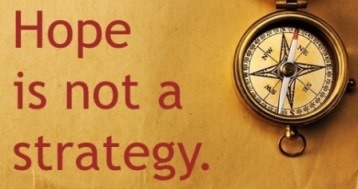 Ever wonder if your communication skills are as good as you think they are? Sometimes even the simplest things get misunderstood. Listen to this…
Ever wonder if your communication skills are as good as you think they are? Sometimes even the simplest things get misunderstood. Listen to this…
I’m on a late night phone call from a consulting client. She’s had a long day of meetings, and decided to swing by a restaurant she owns and sit by their outdoor fireplace as we debriefed the day.
In the background, I hear her flag down a waitress and ask, “Can you bring me a screwdriver please?”
We talk for a bit, and soon I hear laughter. Then I hear the waitress apologizing. Then more laughter. They are hysterical!
I’m so curious that I’m trying to see through the phone line to figure out what has them doubled over laughing. “What in the world is going on there?”
She’s laughing so hard she can hardly get the words out. “The waitress brought me a tool box! I asked for a screwdriver — I just wanted a cocktail! She brought me an entire toolbox!” 
I’m now I’m laughing so hard I have tears rolling down my face. She’s laughing, the waitress is laughing, and I suspect they had drawn a crowd by now.
So as you can see, even the simplest communication can be misunderstood.
We all agree that good communication is one of the most crucial skills of leadership. Whether you realize it or not, you set the tone for communication throughout your entire company.
So maybe we can’t take even the simplest communication for granted.
EIGHT-POINT COMMUNICATION CHECKLIST
As a leader, how are you doing in each of these eight communication skills?
1) Authenticity: Nothing destroys trust faster than lack of authenticity. Say what you mean and mean what you say. Authenticity doesn’t give you license to blow up or berate (we all have those urges!). It does mean that you can express feelings of disappointment or concern. It means that you don’t over-promise and under-deliver. People will remember what you say, so be very sure you mean what you are saying.
2) Balance advocacy with inquiry: Much of a leader’s job involves “telling and selling.” Be sure to balance out your advocacy with inquiry, with getting others opinions. And listen! Stretch to understand what each person is saying. Just as important, what are they NOT saying? Use “active listening” skills, which means you reflect back what you believe you heard. You check in, “Am I understanding you correctly when I hear you say that …” Ask good questions: There is tremendous healthy power in asking the right questions. Ask what slows people down, what is inefficient in the system. Ask for ideas. Ask what they need. Ask what they expect. Stop selling and start listening.
3) Context matters: Once again, the screwdriver…here’s the back story: that waitress knew that the restaurant owner is quite particular about the patio furniture, and had recently mentioned some of the fittings were loose. Given that context, she seriously thought that the owner wanted to tighten up the screws in the furniture. Hence…she brought her a toolbox instead of a cocktail! That’s called “context.” Check in to understand the larger context of what’s being discussed and you’ll save yourself lots of frustration. (Though you might miss a few laughs!)
4) Shared meaning: Repeat back what you heard and make sure you clarify. For example, you might say, “We need this project completed fast.” Well, what does “fast” mean to you? Does is mean right now, drop everything and do it? Or does it mean by the end of the month? Clarify to make sure your words have shared meaning. (Like screwdriver = cocktail vs. screwdriver = tool!)
5) Early and often: When people don’t have information, they fill in the blanks themselves. And most of the time, they fill that gap with something negative. Especially when change is in the works, keep people informed. Speak to the issue as soon as possible and keep people updated.
6) Disagree and debate: You want an environment where people can feel comfortable to disagree and debate issues, priorities, strategies and methods. Jim Collins found this characteristic to be one of the most significant factors in the most successful companies.
7) Who needs to know What by When?: One of the biggest complaints of employees (customers too!) is that they feel like they don’t have all the information or are not kept informed. With every project or decision, ask yourself this question: Who needs to know What by When? That positions your employees to do their best work.
8) Undiscussables: Nearly every organization has topics considered to be “undiscussable.” These are the very topics that can sink you. Undiscussables sap energy and create gossip (because people are talking about them anyway, just not to your face). Create a culture where it’s safe to draw out the very topics that people are scared to bring up.
We’re going to tell that funny screwdriver story for a long time. (And create more laughter, which is a good thing, because we all need more laughter.)
But beyond the comedy, here’s the real point: Foster a climate of authentic, clear and open communication with employees, with vendor and with customers. Your employee and your customers will all benefit!
Communicate with me too, right below in the comments section. Got a funny miscommunication story? I’d love to hear it!
Take care,








